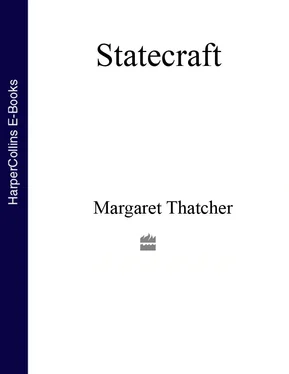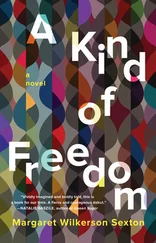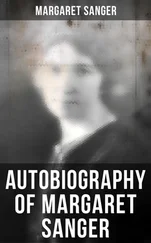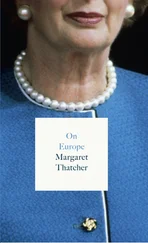It followed, of course, that since no side had won (or, doubtless more important to Mr Gorbachev, no side had lost) and no single ideology was sufficient for the needs of the world today, the search for solutions must go on. And, not surprisingly perhaps, it was through resort to all the most fashionable nostrums that this search should be pursued – by turning (as he put it) to ‘new methods, a new philosophy, a new thinking that can help us understand one another and the conditions of the globalising world’.
Mr Gorbachev is lively, engaging and a great talker – a subject on which I am a good judge (on this occasion he spoke for about a third of the conference). But his remarks in Prague seemed to me, to say the least, of doubtful validity.
Yet nor should they be lightly dismissed. They represent the articulation of a strategy, common to the left in many countries, of seeking to escape all blame for communism and then going on to take credit for being more pragmatic, modern and insightful about the world which those who actually fought communism have created. It is a pressing necessity to expose and defeat both distortions.
Revisionism about the Cold War has taken various guises. But underlying them all is the assertion that the policies of Ronald Reagan towards the Soviet Union were, as you prefer, superfluous, dangerous or even counter-productive. It was not just loyalty towards my old friend that irritated me about this. It struck me – and still strikes me – as potentially disastrous, because learning the wrong lessons could still result in adopting the wrong responses.
With all this in mind, on the same evening in Prague I put to good use a short speech of thanks when I and the other distinguished guests received the Czech Order of the White Lion. I said:
Belief in the unique dignity of the human person, in the need for the state to serve and not to dominate, in the right to ownership of property and so independence – these things were what the West upheld, and what we fought for in the long twilight struggle that we call the Cold War. In the ten years that have elapsed since communism fell, much has been written of that great conflict. There has even, at times, been a little revisionism at work. But truth is too precious to become the slave of fashion.
As I receive this award today, I would like to refer to the man who more than any other – and more than me – can claim to have won the Cold War without firing a shot – I mean, of course, President Ronald Reagan. The fact that he cannot be here, for reasons that are well-known, *reminds us also of so many others who can’t be here – because they perished in prisons and by torture.
In the joy we now feel that Europe is whole and free let us not forget the terrible price that was paid to defend and to recover liberty. As the poet Byron wrote of another such prisoner of conscience:
Eternal spirit of the chainless mind!
Brightest in Dungeons, Liberty! thou art,
For there thy habitation is the heart –
The heart which love of thee alone can bind;
And when thy sons to fetters are consigned –
To fetters, and the damp vault’s dayless gloom,
Their country conquers with their martyrdom,
And Freedom’s fame finds wings on every wind.
I wanted to remind the politicians present – the ordinary Czechs needed no reminding, as the reception they gave me had demonstrated – that the Cold War was a war for freedom, truth and justice. And we anti-communists won it.
Above all, Ronald Reagan won it. Only when (and if) the full, undoctored records of the Soviet Union are released and studied will a full correlation be possible between the actions of the Reagan administration and the reactions of the Kremlin. But it is already possible to show that President Reagan deserves to be regarded as the supreme architect of the West’s Cold War victory. This is, surely, the deduction to be made from the remarks of the last Soviet Foreign Minister, Alexandr Bessmertnykh, at a fascinating conference reflecting on Soviet—American relations in the 1980s. *
Among Mr Bessmertnykh’s observations are the following:
On America’s deployment in the autumn of 1983 of Cruise and Pershing II missiles in Europe in the face of both the previous deployment by the USSR of its SS-20s and a fierce barrage of propaganda and threats –
… the decision was definitely a great disappointment … [T]he situation had tremendously deteriorated as far as Soviet interests were concerned. But looking back from today’s position, I think that the fact itself … helped to facilitate and to strongly concentrate on solutions.
On President Reagan’s announcement earlier that same year of his plans for the Strategic Defense Initiative (SDI) –
… I would say that one of the major moments when the strategists in the Soviet Union started maybe even to reconsider its positions was when the programme of SDI was pronounced in March of 1983. It started to come … to the minds of the [Soviet] leaders that there might be something very, very dangerous in that.
And, finally, on the relationship between the Reagan defence build-up (which both the deployment of intermediate range nuclear weapons in Europe and the decision to go ahead with SDI signified) and the internal weakness of the Soviet Union –
… When Gorbachev came to power in Moscow, the economic statistics already indicated that the economy was not doing so good. So when you were talking about SDI and arms control, the economic element … was sometimes in my view the number one preoccupation of Gorbachev, especially when we were preparing ourselves for Reykjavik. [Emphasis added]
The October 1986 Reykjavik summit, to which Mr Bessmertnykh here alludes, was – as I have written elsewhere – the turning point in the Cold War. *Mr Gorbachev already knew from earlier discussions with President Reagan how passionately committed he was to SDI, which he saw as not just practically necessary but morally right – a programme aimed at the defence of lives and one which did not rely only on a balance of nuclear terror. But the Soviet leader also knew from all the information available to him that the Soviet Union, with its stagnant economy and its technological backwardness, could not match SDI. He had to stop the programme at all costs. So he tempted President Reagan with deep cuts in nuclear weapons, before springing on him the condition – that SDI must stay ‘in the laboratory’.
Mikhail Gorbachev won and Ronald Reagan lost the public relations battle in the wake of the consequent breakdown of the talks. But it was the American President who had effectively just won the Cold War – without firing a shot. In December 1987 the Soviets dropped their demands for the abandonment of SDI and agreed to the American proposals for arms reduction – notably the removal of all intermediate range nuclear weapons from Europe. Mr Gorbachev had crossed his Rubicon. The Soviets had been forced to accept that the strategy they had pursued since the 1960s – of using weaponry, subversion and propaganda to make up for their internal weaknesses and so retain superpower status – had finally and definitively failed.
I still find it astonishing that even the left should try to deny all this. It is, of course, not a crime to be wrong. But it is not far short of criminal to behave as some of them did when they thought that the Soviet Union was on the winning side. These people were blind because they did not want to see, and because they were intoxicated with the classic socialist fantasy of believing that state power offers a short-cut to progress. Thus the American journalist Lincoln Steffens observed after visiting the Soviet Union in 1919: ‘I have seen the future; and it works.’
Читать дальше












